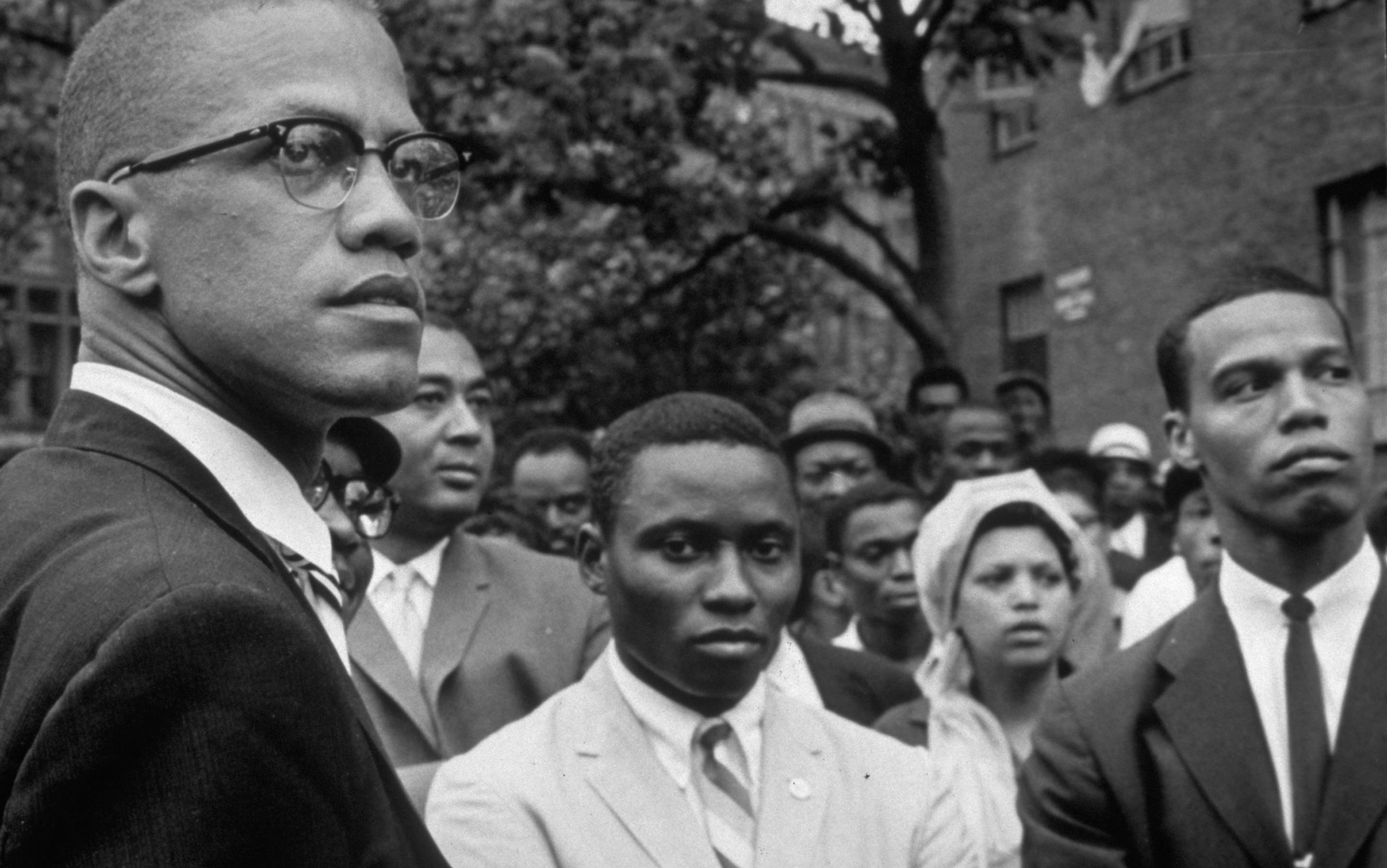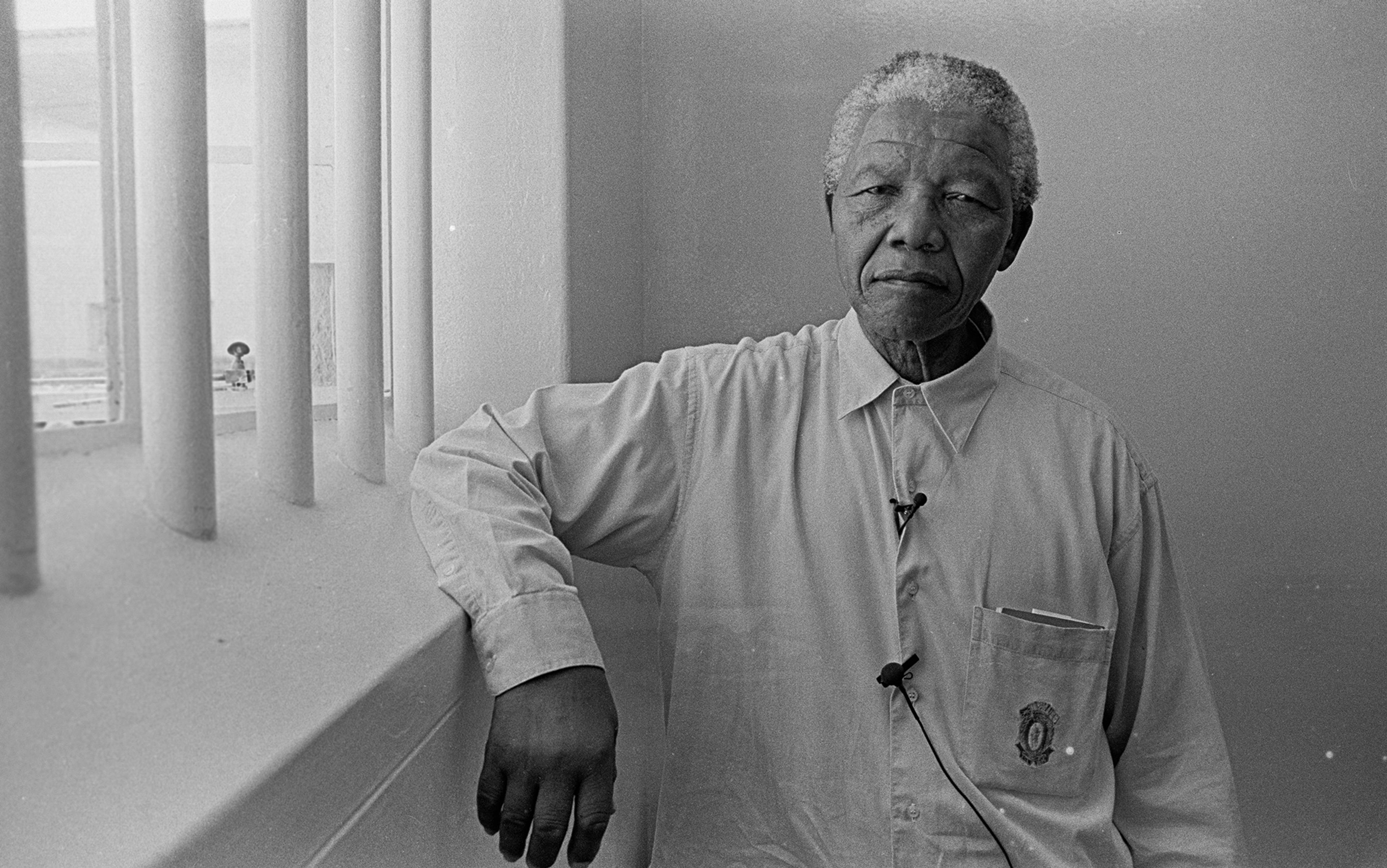You have stolen my dreams and my childhood with your empty words. And yet I’m one of the lucky ones. People are suffering. People are dying. Entire ecosystems are collapsing. We are in the beginning of a mass extinction, and all you can talk about is money and fairy tales of eternal economic growth. How dare you!
– Greta Thunberg, 23 September 2019, New York
At her speech at the United Nations summit on the impending climate crisis, 16-year-old Greta Thunberg spoke with passion and anger, calling out those who have been apathetic towards bringing about global warming. Her speech was criticised by many for Thunberg’s bellicosity, which allegedly put off potential sympathisers to the movement. Anger is alienating, upsetting and even exclusionary under particular circumstances – yet one can’t help but feel that Thunberg’s anger is at least partially justified. After all, it is decades of unbridled carbon emissions and industrialisation that have led us to the mess we are in today.
Thunberg’s speech – and what we make of it – epitomises an age-old conflict between those who oppose anger for its seemingly counterproductive consequences, and those who find anger a natural and appropriate human emotion with value in both public and private spheres. From the righteous, worldwide anger that launched the 2017 Women’s March, the day after Donald Trump’s inauguration as president of the United States, to the nihilistic anger propelling the anti-extradition bill movement in Hong Kong, to the fearful anger emanating from the ongoing anti-Citizenship Amendment Act (CAA) protests across India – the question is the same: what is the value of anger?
For Aristotle, anger was ‘a desire accompanied by pain for perceived revenge caused by a perceived slight, of the sort directed against oneself or one’s own, the slight being undeserved’. Anger is thus reactive towards a perceived violation, and embeds within it a vindictive yearning for revenge. Think about that time your best friend lied to you, or when your cherished bike was stolen – it hurt, but it also made you feel as if you were owed answers.
The philosopher Amia Srinivasan at the University of Oxford is an advocate of anger’s merits. Her work makes the case for anger by drawing extensively on fields ranging from political science and sociology to feminist epistemology. Among the many arguments in her seminal article, ‘The Aptness of Anger’ (2018), she notes that anger can be productive epistemically – that is, in the production, shaping and organising of our knowledge and understanding. It better enables victims to make sense of their oppression by heightening their emotions and allowing them to focus on specific features of their victimisation. Victims of injustice or circumstance are often told by their oppressors to blame themselves; consider, for instance, the black single mother blamed for ‘choosing’ to become a ‘welfare queen’, or those languishing in caged homes in Hong Kong, who are told that their socioeconomic circumstances are their own fault. Gaslighting and dismissal of their lived experiences are part and parcel of everyday life for the voiceless. Anger supplies those who are wronged or slighted with the resilience to say: ‘No! It is not my fault.’ It clarifies the injustice that befalls them, enabling individuals to make sense of their situations by access to their authentic feelings.
Anger is epistemically valuable not just for the individual, but also for those around them. The philosopher Alison Jaggar at the University of Colorado Boulder observes in Just Methods (2014) that ‘anger becomes feminist anger when it involves the perception that the persistent importuning endured by one woman is a single instance of a widespread pattern of sexual harassment’. It is an emotion that both transcends and unites people by providing context for an individual’s grievances. Those on the 2017 Women’s March found solace and reassurance in their shared anger, in knowing that they were not the only ones outraged by the country’s decision to elect Trump as its president. When co-opted skilfully by just causes, anger enables victims to identify similarities in their lived experiences, overcoming the superficial differences that drive them apart.
The philosopher Maxime Lepoutre at Nuffield College in Oxford argues that anger – as expressed through speech or nonverbal cues – can direct attention to the most morally pressing features of particular situations. For instance, victims of domestic abuse, through spontaneous anger, articulate publicly the extent of violation and pain they experience at the hands of their abusers. Thunberg’s angry speech reminds us of the extent to which we are actively, presently complicit in the persistence of climate change. Communicative anger helps us understand what is at stake, and what is most important to those with whom we are speaking.
Anger can motivate people, too. Malcolm X’s anger found voice in his call for violent self-defence and active resistance towards both the institutionally racist police force and the tacitly racist American middle class. His advocacy epitomised a willingness to subvert established legal structures and social norms in advancement of African American interest. Anger mixed with symbolic or psychological violence – as opposed to the non-violent, non-confrontational methodology for which Martin Luther King became known – was the driving force behind those who found King’s methods too conciliatory and inefficacious. Regardless of how one assesses the moral legitimacy of Malcolm X’s methods, his radical activism reshaped public discourse, rendering King’s advocacy not only more palatable, but even honourable in the eyes of the fundamentally shaken American public. As Srinivasan notes: ‘It is historically naive, after all, to think that white America would have been willing to embrace King’s vision of a unified, post-racial nation, if not for the threat of Malcolm X’s angry defiance.’
Moreover, sustaining a social movement is difficult, especially if its constituents come from socioeconomically disenfranchised backgrounds and are cynical about their chances of success. Attending marches and protests could be costly. The prospects of being imprisoned or persecuted are daunting. Against these obstacles, anger rallies people together – it transforms public, societal causes into intimate, personal reasons that you care about and are devoted to. By providing the individual with the instinctive justification to keep believing and carrying on, anger spurs and sustains action, even if the odds of succeeding are slim.
Common anger fuels the construction of an imagined community, held together by the joint repudiation of injustice. It was the anger towards the Wall Street establishment and its impunity in the aftermath of the 2007-8 financial crisis that spurred the Occupy protests. It is the anger towards the ethnonationalist populism of India’s Prime Minister Narendra Modi that convinces CAA protesters to set aside partisan or socioeconomic differences and rally to the defence of Muslim interests.
More fundamentally, however, anger cuts across the layers of excuses and rationalisations that we regularly employ to shirk responsibility. When people are told of the numbers of refugees drowning at sea after being turned away by wanton governments, they often grow numb to these routinised ‘tragedies’. Yet the rending image of a lone dead child, washed up on a Turkish shore, stokes a visceral anger. We feel responsible for not having done more, because in our anger we come to the recognition that we possess the agency to have acted otherwise. In turn, such sense of responsibility propels us to consider how and where we could make a difference.
Nussbaum sees anger as a primitive emotion that amplifies our worst tendencies
But anger also has its critics. Despite its many advantages, it can be injurious, even detrimental. In Homer’s Iliad, Achilles throws a tantrum when Agamemnon seizes his coveted prize of war, the slave Briseis. Achilles’ incandescent rage leads him to refuse to fight alongside his men, almost costing the Greeks a scorching defeat at the hands of the Trojan army. His anger later propels him on a killing spree – against all those who stood between him and the vanquishing of Hector, his nemesis.
As a pioneer in feminist philosophy and practical ethics, the philosopher Martha Nussbaum is one of anger’s most vocal critics. In her 2016 Aeon essay, Nussbaum argues that: ‘The payback idea is deeply human, but fatally flawed as a way of making sense of the world.’ Drawing upon ancient Greek philosophy and the virtues it embodies, Nussbaum sees anger as a primitive emotion that amplifies our worst tendencies and jeopardises tolerance in democratic politics. She argues that anger has two components: the first is the recognition that a serious wrong has been committed; the second is a desire for the wrongdoer to suffer. We are angry towards what we perceive to be a violation of moral expectations, and – where there are clearly identifiable actors – we wish for justice to be served through their suffering the consequences.
Anger is an overriding emotion – it is, by its vindictive and impulsive nature, uncontrollable and blinding. It wages war against cool and steady consideration of all reasons in decisionmaking, by amplifying disproportionately our thirst for what we take to be justice. At its worst, anger is what propels terrorist ideology and mass violence, committed by psychopathic individuals to exact revenge and attain justice under their ideological conceptions. More mundanely, anger causes us to shut out dissent and take pleasure in inflicting pain upon others – it transforms others’ suffering into something we take to be right and warranted. We can be easily skewed by our biases and pre-existing views to project our anger on to the wrong individuals, thereby undermining our ability to act upon our considered judgments.
Also, anger could be counterproductive in politics. For activists, anger could spur irrevocable violence or conflict, exclude those whom it targets, and incite polarisation and vitriol to the point of dissipating mass support for particular causes. Take the extremism of some ‘Bernie Bros’, for instance, who have alienated many in the centre-Left through their angry tirade against Hillary Clinton supporters in 2016 and Joe Biden supporters in 2020. While their progressivism is perhaps understandable and reasonable, their anger arguably only pushed wavering and partially sympathetic individuals away from their movement.
More generally, for democratic politics, anger has the intoxicating effect of polarising discourse – in the aftermath of the 2016 referendum on leaving the European Union, the United Kingdom was driven apart by vitriolic, partisan rhetoric of anger: Brexiteers were angry at Remainers meddling with Brexit’s democratic mandate, whereas Remainers were angry at Brexiteers for forcing the country into a historic mistake.
So anger is clearly a double-edged sword. The question becomes: how should we weigh up the usefulness and appropriateness of anger, against its potentially deleterious effects?
Srinivasan argues that, even if anger undermines the victim’s ability to obtain better outcomes and is counterproductive at combating injustice, there are cases where such anger might still be an apt response to injustice – independent of consequential considerations. The concept of aptness tracks what is appropriate in light of relevant factors and norms guiding our conduct and thoughts – that is, in describing whether our attitudes fit reasonable judgments towards the past. She argues that getting angry ‘is a means of affectively registering or appreciating the injustice of the world’, comparable to our exercise of aesthetic judgment. We react to beautiful art with appreciation of its value, not because such appreciation is instrumentally useful, but because the positive judgment fits with the high quality of the art. Similarly, we should care about reacting to injustices with anger, independent of whether such reactions promote better outcomes, because anger is the appropriate response that registers the wrongness and severity of the injury.
For Srinivasan, social structures and routines preserve a fundamental conflict between appreciating and recognising the world as it is – and making it a better place. This is what she terms ‘affective injustice’, where victims of injustice are naturally told to suppress their authentic, natural reactions in exchange for achieving better outcomes. This tradeoff is itself unjust, for it requires the individual to suspend true sentiments to navigate the quagmire of injustice that’s reality. Individuals are forced to choose between feeling what they’re most naturally and justifiably inclined to feel, and suppressing these emotions to make practical progress. By extension, victims are often negatively judged and policed by others for feeling angry about their circumstances.
Our ability to react aptly to injustice is a core constituent of being fully fledged moral agents
An act of retaliation by a victim of female genital mutilation could trigger condemnation and even a rollback of gender equality interests. Or consider, for instance, members of the Gulabi Gang, an Indian women’s group against domestic abuse, who are told that their vigilante acts instigate backlash towards the feminist movement in India at large. The choice between retributive justice and preserving other women’s interests is a clear case of affective injustice, for it coerces victims into suppressing their anger, to which they are entitled. When these individuals’ actions are justified, then simply experiencing and not acting on anger – which is, if anything, a milder and less intense reaction – could also be justified. If pursuing justice – with both anger and manifested action – can be warranted, it seems only reasonable for individuals to feel, while not acting upon, their anger.
What Srinivasan perhaps misses, however, is how we should weigh up these two considerations – feeling what is apt, and feeling what is conducive towards future betterment of the current state. Indeed, there are good reasons to think that attaining better outcomes is not as important as responding aptly to injustice.
The reason why actions can be morally judged is because humans are moral persons capable of moral agency. Our moral agency gives meaning and value to our actions. It goes to the core of our interactions with one another. Humans, unlike machines, are broadly autonomous, responsive to a wide range of reasons, and constitute voluntary beings with our pursuit of what matters to and for us. ‘We’ are not interchangeable because each of us possesses distinctive thoughts, intentions and characters, as separate moral persons. We are guided by a range of motivations – sometimes to bring about better consequences in the future, at other times to reflect upon and appraise our past, or to make sense of what is happening to us in the now. Picking and choosing from these motivations allows us to be fundamentally free – in determining the character of the lives we lead and our moral personhood. Of course, one can choose to be fundamentally egotistical or evil – while these choices are regrettable and condemnable, our choosing them nevertheless reflects the fullest extent of our agency; we are not, and should not without further reasons, be bound by narrow interpretations of how we should live our lives.
One way to exercise our moral agency is to behave in a manner that we believe brings about the best consequences. There are other methods, such as adherence to absolutist rules, as deontologists hold, or possessing the right dispositions or attitudes, as virtue theorists argue. Of course, there are times when such decisional methods overlap – a virtuous agent can be one that doesn’t break any absolute rules, or contextually brings about the best outcomes. Yet each of these moral frameworks is, at the core of their associated reasons and explanations, different. To bring about the best outcomes is only one moral outlook – among many alternatives – that we can adopt. Not all moral agents are bound to be consequentialists – just as it can be valid for someone to live life adhering to a strict rules-based morality (eg, Kantianism).
On the other hand, a necessary aspect of our moral personhood, cutting across individuals who adopt completely different moral frameworks, is our capacity for judgment of and appropriate response to what befalls us – including, of course, injustices. Our ability to react aptly to injustice is thus a core constituent of our being fully fledged and developed moral agents. There could, of course, be cases where the desire to promote the best outcomes for society outweighs our interests in being well-rounded, comprehensive moral persons. However, we should be allowed to lead lives as dynamic agents who respond to a wide range of reasons, just as we can lead lives centred around pursuing personally significant pleasures and relationships, even at the expense of bringing about the best consequences overall.
Now let us take a step back, and reflect upon whether anger truly is as detrimental as Nussbaum puts it, particularly in instances of injustice. In her criticism of anger, Nussbaum argues that victims of injustice driven by anger must confront a ‘fork in the road’ – either they focus on the perpetrator of injustice, treating the act as a personal violation, and thus demand payback from the wrongdoer; or they focus on the act of injustice itself, and seek compensation, because they believe that the offender’s suffering would in fact make them better in the act’s aftermath. She views the former path as unduly self-centred and obsessive over status, at the expense of other more valuable goods that we can value intrinsically. The latter path doesn’t make sense, because retaliation does little to help recover those deprived goods. Nussbaum thus concludes that anger, at least in the Aristotelian sense, is fundamentally undesirable.
Let’s look at the first path. Nussbaum thinks that when we angrily react to someone who has wronged us, our sentiments stem predominantly (albeit not always) from feeling that we have been slighted and ‘down-ranked’ – that is, we are placed at an inferior or more vulnerable position relative to our wrongdoer, both within the shared perceptions between us and our wrongdoer, but also within the wider community’s perceptions. Nussbaum sees anger as probabilistically connected with the feeling that we have been unduly lowered in our status – not necessarily in the wider, social sense of status, but certainly in the interpersonal sense. As such, she rejects anger because it involves a narrow obsession over status, thus crowding out our ability to pursue alternative goods other than status. Think about the time when your anger towards a close friend compelled you to blurt out words that were deeply hurtful. Nussbaum would say that your fixation with reclaiming a ‘superior’ standing against your friend – by acting out angrily towards them – only precludes you from accessing greater goods, such as friendship and companionship. Alternatively, by focusing on your being disrespected and ‘down-ranked’ relative to someone who, say, hurled racist abuse at you, you end up passing over the alternative paths forward in life that don’t involve confronting and fixating over a racist in anger.
Yet this view – while intuitively compelling – seems to gloss over the real lived experiences of many who undergo oppression or injustice. The apartheid regime that persecuted black South Africans was founded upon a status-hierarchy that privileged the white population. The Indian caste system was historically maintained through the continuous subjugation of ‘lower classes’, enabling the more privileged to derive profits and comforts off the backs of their less-fortune counterparts. Underpinning such injustices is a systemic distortion of status – one that ranks individuals according to arbitrary, often self-serving metrics designed by those in power. In these contexts, the reclamation of status by victims is not only important, but of paramount significance in the reparative process – after all, anger directed at their former oppressors enables victims to regain their ranking in the social hierarchy. Nussbaum attempts to distinguish between ‘the injustice itself’, and ‘the way it has affected my [victim’s] ranking in the social hierarchy’, positing that we should focus on addressing the former and not the latter. Yet this distinction neglects the empirical realities that some of the worst injustices in history are precisely the subjugation of individuals’ rankings and places within the hierarchy.
Anger enables victims to pinpoint the most important components of their restorative process
More importantly, anger extends beyond merely the narrow desire to obtain greater status – it also embodies the total repudiation of the normative order transcribed in the injustice, and the overwhelming desire to make things better in the future. Defiance of imposed values, commitment to future progress – these seem to be not just valuable intrinsic goods, but also enabling attitudes that facilitate greater intrinsic goods to be obtained in the future.
Nussbaum offers us a way out. She argues that such forward-looking ‘Transition-Anger’ should be taken as the exception to the norm, and concedes that such anger has value but must be separated from the ‘garden-variety anger’ most ubiquitous in everyday life.
Yet such a distinction doesn’t seem to be empirically tenable – it’s difficult to imagine individuals being motivated by anger to assiduously avert future injustices, without at least a tinge of anger in how they react to past and present events that have befallen them or their colleagues. Requiring victims to channel all their reactive anger into institutional reform appears to be steeped in affective injustice of another sort. This requirement is far too demanding and unsympathetic to victims’ often entangled emotions and complex situations. Nussbaum’s first attack on anger doesn’t stand.
So what of the second path, the alleged futility of focusing on the act of injustice itself? Nussbaum argues that when we try to regain what we have lost through anger, we never succeed. Anger is overpowering and dominant as an emotion – and renders reconciliation and healing impossible. It also fixates upon the lost cause of attempting to recover the irrevocable. Only in the absence of anger, Nussbaum posits, could we move forward and work towards genuine self-betterment.
Here her argument once again falls short in instances of predicaments confronting most victims of structural injustices and systemic oppression. Where their core goods and interests are stripped away, anger is the sole emotion that offers reassurance that such injustices are through no fault of their own, and that they ought to feel proactively involved in the restoration of goods to which they are entitled. The alternatives to anger in these cases are unlikely to be sanguine hope or prudent optimism. We could hope for these alternatives, but they are likely to be despair, regret and blame – all far more defeatist and inward-looking emotions that sap the very motivation that propels victims to seek justice for their wronging.
While anger might not be the most practically useful emotion to have in all cases, its epistemic and motivational productivity makes it the ideal candidate in steering victims towards making appropriate claims to compensation or reparation. It is the anger towards losing what matters that enables victims to pinpoint the most important components of their restorative process – of course, we might not think that restoration is intrinsically most valuable, but this critique misses the point. Anger can play a crucial role in recovering lost goods.
For far too long, anger has been maligned and rejected as having no role to play in mature politics. Yet, in reality, injustice and failure often leave us feeling angry. And that’s quite all right. Anger need not be defeatist or destructive – it is productive, justified and an innate component of what makes us human.






